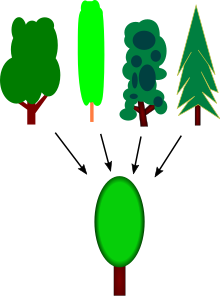**Ontology of Concepts**:
– Concepts are abstract objects or mental representations.
– The ontology of concepts influences theories of the mind.
– Understanding the ontology of concepts is crucial for integrating them into broader theories.
– It determines the functions allowed by concepts.
– Two main views exist: concepts as abstract objects or mental representations.
**Concepts as Mental Representations**:
– Concepts are building blocks of mental representations.
– Mental representations form propositional attitudes.
– Propositional attitudes contribute to understanding thoughts.
– In physicalist theory, concepts are brain-made symbols denoting real-world entities.
– Concepts aid in categorization, memory, decision making, and learning.
**Concepts as Abstract Objects**:
– Concepts are viewed as abstract objects in the semantic perspective.
– Debate exists on the relationship between concepts and natural language.
– Lexical concepts equate to single words.
– Concepts are studied in linguistics, philosophy, psychology, and cognitive science.
– A concept is a symbol representing an abstraction, not the actual object.
**Concept Classification**:
– Concepts are classified into superordinate, basic, and subordinate levels.
– Higher levels are superordinate, lower are subordinate, and middle levels are basic.
– Examples include the concept of a chair under furniture.
– Concepts can be exact or inexact.
– Generalizations like the concept of a tree simplify complex information for higher-level thinking.
**Importance of Concepts**:
– Concepts play a vital role in cognition.
– Studied in linguistics, psychology, and philosophy.
– Interdisciplinary approach in cognitive science.
– Used in mathematics, computer science, databases, and artificial intelligence.
– Conceptual classes like schema and categories are formalized in various fields.
A concept is defined as an abstract idea. It is understood to be a fundamental building block underlying principles, thoughts and beliefs. Concepts play an important role in all aspects of cognition. As such, concepts are studied within such disciplines as linguistics, psychology, and philosophy, and these disciplines are interested in the logical and psychological structure of concepts, and how they are put together to form thoughts and sentences. The study of concepts has served as an important flagship of an emerging interdisciplinary approach, cognitive science.
In contemporary philosophy, three understandings of a concept prevail:
- mental representations, such that a concept is an entity that exists in the mind (a mental object)
- abilities peculiar to cognitive agents (mental states)
- Fregean senses, abstract objects rather than a mental object or a mental state
Concepts are classified into a hierarchy, higher levels of which are termed "superordinate" and lower levels termed "subordinate". Additionally, there is the "basic" or "middle" level at which people will most readily categorize a concept. For example, a basic-level concept would be "chair", with its superordinate, "furniture", and its subordinate, "easy chair".

Concepts may be exact or inexact. When the mind makes a generalization such as the concept of tree, it extracts similarities from numerous examples; the simplification enables higher-level thinking. A concept is instantiated (reified) by all of its actual or potential instances, whether these are things in the real world or other ideas.
Concepts are studied as components of human cognition in the cognitive science disciplines of linguistics, psychology, and philosophy, where an ongoing debate asks whether all cognition must occur through concepts. Concepts are regularly formalized in mathematics, computer science, databases and artificial intelligence. Examples of specific high-level conceptual classes in these fields include classes, schema or categories. In informal use the word concept often just means any idea.
English
Etymology
Borrowed from Middle French concept, from Latin conceptus (“a thought, purpose, also a conceiving, etc.”), from concipiō (“to take in, conceive”).